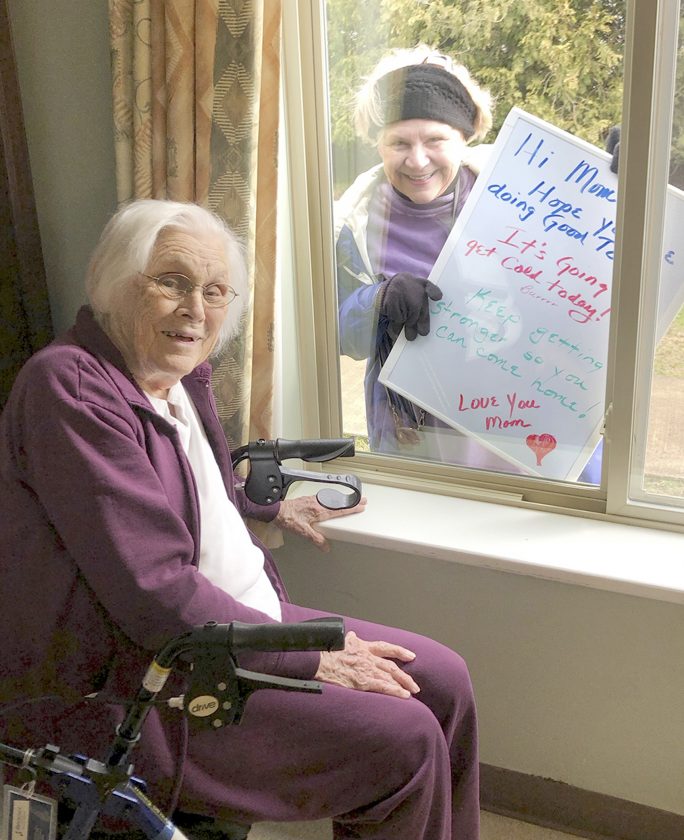Long-Term Care Under COVID-19 Explained
Sarah OrdoverMay 27th, 2020

Keeping an ailing or mentally impaired parent at home or finding somewhere else for them to live can be a devastating situation at any time. Seniors are not always safer at home, especially during this time of Covid-19. Many families are faced with something of a“Sophie’s Choice”.
Frightening reports on long term care facilities lead you to believe that every nursing facility and assisted living is a “death trap”. This is not the case. I work withmany assisted living communities in Los Angeles and I can tell you, the reports are painting long term care facilities with an overly broad brush. The death rate for seniors in congregate living is terrible but so are the choices some families are confronting right now. We need to help them by clarifyingthe numbers so that they are better able to weigh the risks without sensationalism driving the news.
There are two very different types of nursing facilities: skilled nursing facilities (SNFs) and long-term nursing homes. A nursing home provides residential care to patients who need help with meals and daily activities like ambulation, grooming,toileting and medication management. A skilled nursing facility (SNF) helps patients upon discharge from a hospital who need further medical attention from trained professionals for continued recovery over a limited period of time. This is covered by Medicare or an individual’s private insurance.
AARP reports that about 70%of seniors living in nursing homes are low income, dependent on Medi-Cal to payfor their care. According to the CDC, these lowest income seniors are more likely to suffer from four or more chronic diseases,whereas the general senior population averages two chronic diseases. Influenza, pneumonia, and MRSA are continuing challenges within these environments, even outside of the current Covid-19 pandemic. Long-term nursing facility residents are the most ill seniors in our community.
Significantly, more than fifty percent of them also have Alzheimer’s disease or some other form of cognitive impairment. With so many residents unable to comprehend the need for masks, social isolation and frequent handwashing, dementia itself is a vector for the spread of Covid-19 in long-term nursing facilities.
The National Investment Center for Seniors Housing & Care (NIC) , recently launched a Covid-19 ReachTracker, drawing on publicly released information to compile statistics such as the number of senior living properties in a given metro area with positive Covid-19 diagnoses among residents or staff. They found that 43% of Metro Los Angeles’ 304 nursing properties reported at least one Covid-19 positive resident or staff.
In comparison, the numbersat assisted living are substantially less. Assisted living facilities,encompassing independent living, assisted living and memory care facilities,also provide meals, 24-hour care and help with activities of daily life but ina residential, non-medical setting. NIC compiled data for these care communities in Metro LA and determined there are outbreaks in 37 of 198 facilities, or 19%. The total infection rate within these communities is 339 residents out of more than 19,000 seniors who reside at one of these properties.
Why the difference? Besides the fact that residents in assisted living are generally healthier than those in nursing homes, “assisted living facilities are more customer service focused and invested in their residents. This results in engaged employees who buy-in to a mindset of health and healing and go the extra mile,” according to Dr. Matthew Lefferman, Founder of Access Healthcare,a mobile medical practice that specializes in working with seniors.
So,which is safer? Keeping a parent at home in a multi-level house not equipped for a wheelchair when Dad has had a stroke? Leaving cognitively diminished Mom alone while the family works? Even during the Covid-19 outbreak, some seniors must move to assisted living and memory care facilities. The stress of these situations is heart-wrenching. Families need real information in order to understand the distinctions in this very big and confusing arena.
Assisted Living Locators Los Angeles owner Sarah Ordover is one of LA’s top senior living advisors. Certified in dementia care, Sarah is a trained aging specialist who holds an RCFE assisted living administrators license. Sarah thoughtfully guides families through the senior living decision-making process, helping them find the best solution for their loved ones. Call Sarah at 310-853-8282 for a consultation. Assisted Living Locators is free to clients.



